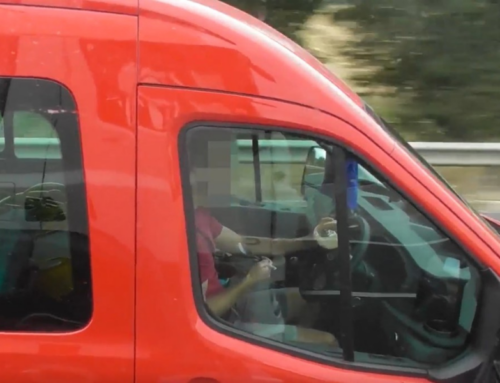How do your drivers report incidents?
Incident reporting is a crucial tool for preventing future collisions. How do you cover incident reporting in your driving for work policies?
Driving for Better Business partner Sopp & Sopp tells us why it is so beneficial.
Fleet Management Benefits
Incident reporting is vital to fleet management in several ways:
- It gives you an accurate baseline for any safety improvements
- It ensures you capture all fleet costs
- It gives you the objective and comprehensive data with which to analyse fleet road risk and target interventions accordingly
- Properly managed it reduces claims costs and allows faster settlement
Crucially, proper incident reporting is part of a portfolio of management responses to collisions, however minor, which allow the organisation to learn and to disseminate that learning to their employees.
Fleet Incident prevention
Sopp & Sopp says that when drivers report incidents within a few hours, their accounts are more accurate and therefore, more useful. Accuracy in incident reporting is essential if fleet managers are to learn about the kind and cause of incidents they suffer.
In many fleets, only insured incidents are reported. Minor damage can often be overlooked – especially if the driver sees the vehicle as simply a mobile toolbox, paid for by another department.
However, it is very important to log minor incidents. Heinrich’s theory of accidents says that for every 300 minor incidents, there will be 29 which cause injuries and 1 fatal incident. This ratio gives a more serious context to broken wing mirrors and dented bumpers.
Clear incident reporting policies
Many fleets use reporting apps, although Sopp & Sopp says a phone call is still a more effective way to ensure the driver communicates all the essential information. Whichever method of notification a fleet chooses, there should be a clear, step-by-step policy of exactly what drivers ought to do in the event of a collision.
Fleets who have multiple drivers per vehicle must be especially assiduous about ensuring incident notification. These fleets are more likely to find clear, consistent communication from drivers a struggle, and have longer reporting times, says Sopp & Sopp.
Financial benefits to Fleet Reporting
There are all kinds of financial benefits to rapid incident reporting. Sopp & Sopp says that rapid first notification of loss means driver accounts are more accurate, and claim settlement is faster. It can also work out substantially cheaper in at-fault collisions, because rapid FNOL (First Notice of Loss) gives your claims management agency or insurer a chance to proactively contact the other party and take control of towing, repairs or credit-hire vehicles, all of which can rack up large bills if left to the third-party insurer.
Sopp & Sopp says the average at-fault claim costs £1,500 less with rapid FNOL.
In not-at-fault claims, you stand a better chance of recovering insured and uninsured loss from the other party if you move fast.
Incident Reporting Technology
Technology which provides evidence of collision, such as cameras, can save up to £2,000 per incident, according to a Sopp & Sopp trial.
Of course, camera and driver coaching technologies are not only useful as reactive tools. They can help to eliminate the risky behaviours which cause collision, and so reduce a fleet’s risk liability overall, adding an important weapon in the fleet manager’s armoury when it comes to reducing road risk in their organisation.






